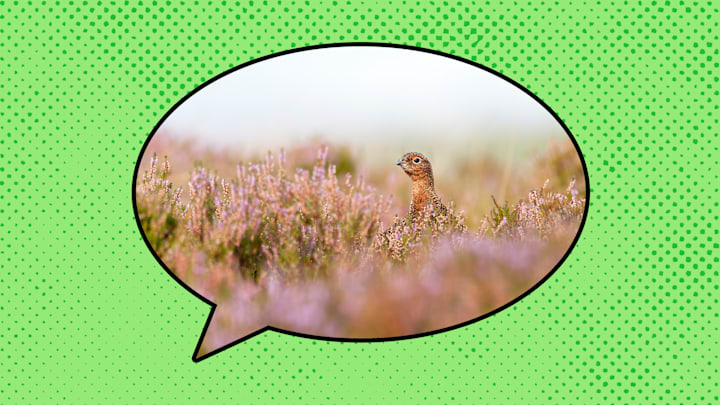If you talk around something you don’t want to discuss, avoid answering a question directly, or just generally hedge or prevaricate, then you could be said to be “beating around the bush.” But what kind of bush are we talking about here? And why exactly are we beating around it?
The Hunting Origins of Beat Around the Bush
Like a lot of our most bizarre phrases and expressions, beat around the bush was once referred to something entirely literal: It came out of hunting and alluded to those who were tasked with thrashing bushes and undergrowth in an effort to scare out any birds, rabbits, or similar creatures that could then be caught in nets by their accomplices.
This bush-beating is an age-old hunting technique, a fact backed up by the very earliest written evidence of the phrase: The Oxford English Dictionary unearthed a version of the expression (“Cast yowre sparehawke in to a tre and beete the bushes”) way back in 1486 in the Book of St. Albans, while Phrase Finder tracked it down in a manuscript of the poem Generydes – A Romance in Seven-line Stanzas from around 1440 (“Butt as it hath be sayde full long agoo, / Some bete the bussh and some the byrdes take”).

It’s likely the technique was around before that, and it still survives among hunting parties today, with “beaters” employed in grouse and pheasant shoots to rouse the birds from bushes and heathland. (Fun fact: Nobel Prize-winning author Kazuo Ishiguro was a grouse beater for the British royal family.)
The OED’s earliest citation for beat around the bush as we would recognize it today dates back to 1572 (“He bet about the bush, whyles other caught the birds”). As for why the beaters were only beating around the bush, it’s been suggested that doing so would prevent them from striking the animals directly, and thereby avoid landing a blow on something more dangerous, like a wild boar.
The Phrase’s Evolution
How, then, did we get from an activity related to a literal a bird hunt to prevarication? It’s probably because the bush-beating and bird-rousing part of the hunt would have essentially been the preamble to the actual hunting and catching.
Ultimately, in the late 1500s, beat around the bush came to be used more metaphorically to refer to acting ahead of or in spite of the inevitable, or whatever else was still to follow. And from there, the phrase later came to be used more pejoratively of somehow delaying, avoiding, or actively putting off doing something altogether.
Discover More Fascinating Phrase Origins:
